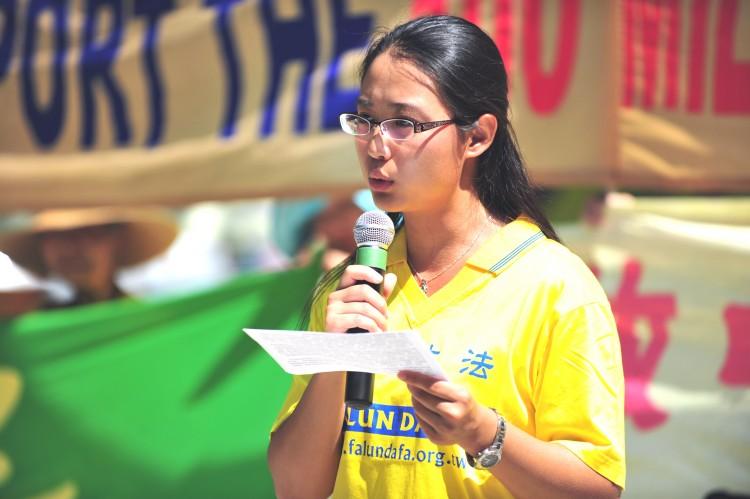
Sonia Zhao gives a speech about the persecution of Falun Gong in China at a rally in Toronto celebrating 100 million people quitting the Chinese Communist Party and its affiliated organizations on August 13. Gordon Yu/The Epoch Times
A Chinese woman who came to Canada to teach Chinese language at McMaster University in Hamilton says she was required to sign a statement promising not to practice Falun Gong in order to obtain her position.
Sonia Zhao says she was warned she would face punishment if she breached the agreement, which she said all volunteer teachers at Confucius Institutes are required to sign before being hired.
As a result, Zhao says she secretly hid her belief in Falun Gong even while working at McMaster. In July, she left the institute and has applied for refugee status in Canada. In a draft statement obtained by the Epoch Times, Zhao says, “Since I left the Confucius Institute, for the first time, I feel free inside.”




